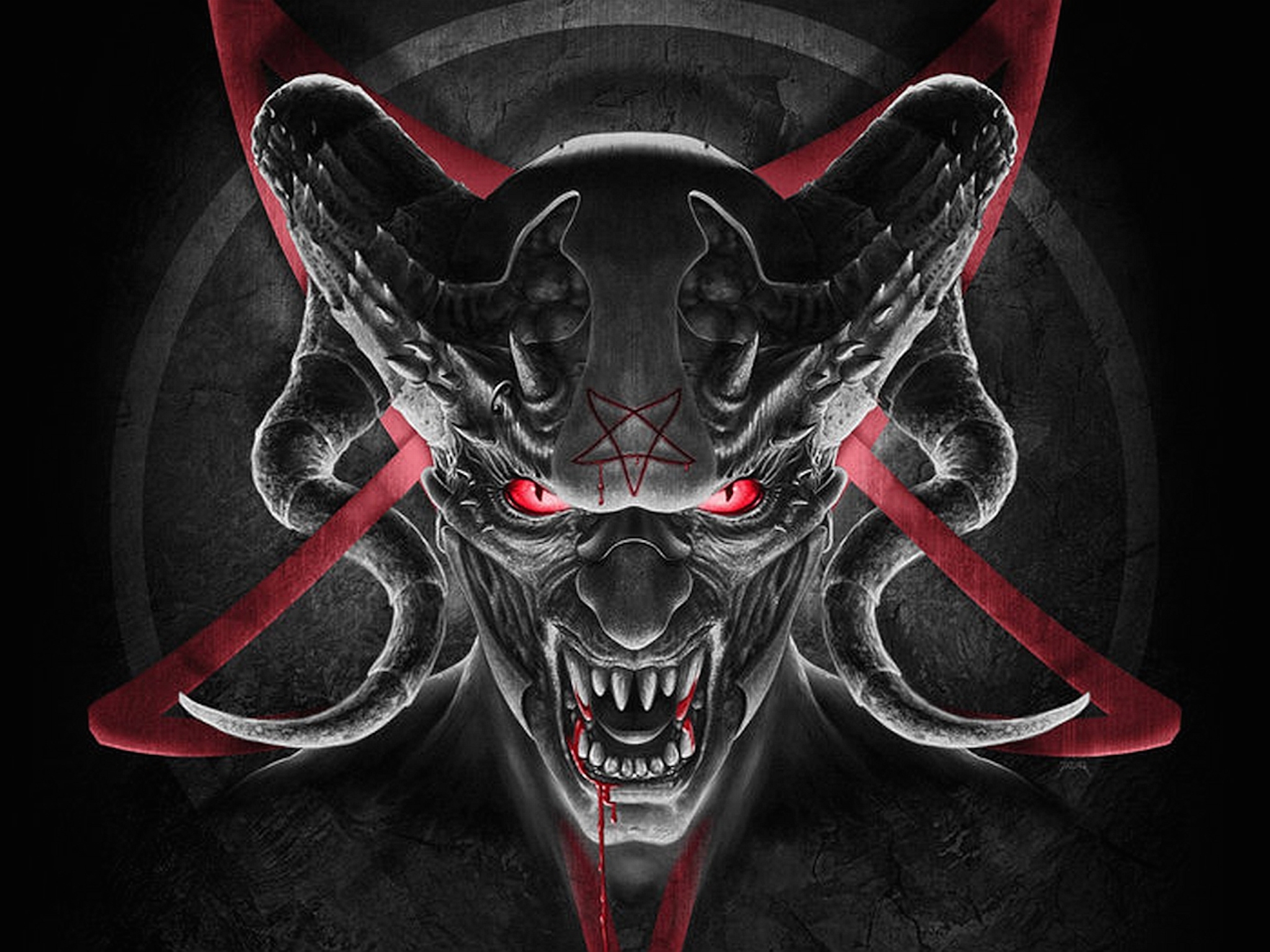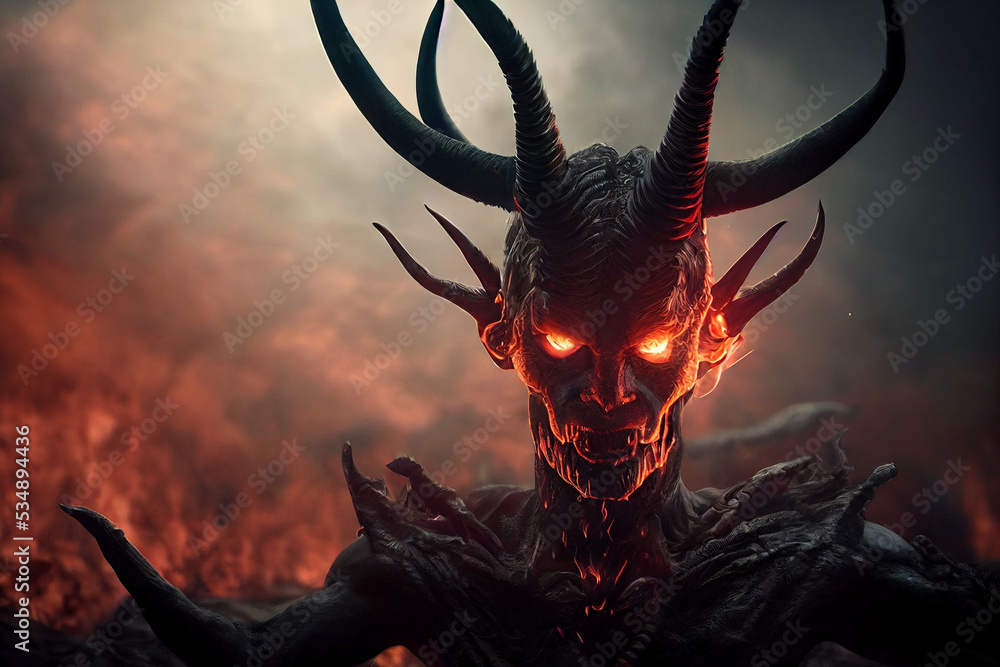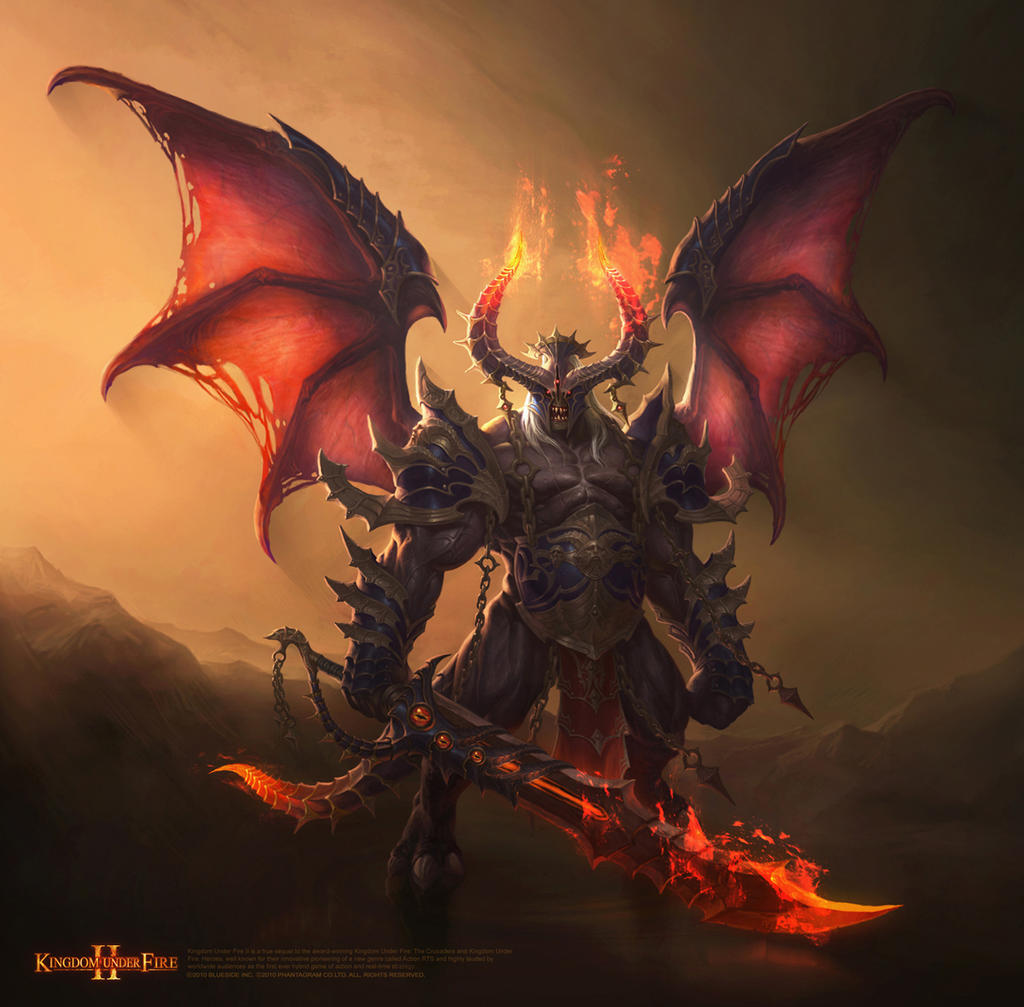Unpacking The Intrigue Of Every Demon Name: A Deep Look
Have you ever felt a shiver run down your spine just by hearing a certain word, a name that carries an ancient weight? It's pretty amazing, isn't it, how some names just resonate with a deep, unsettling power? When we talk about a demon name, it's not just a label; it's often a key to stories, fears, and beliefs that have shaped human culture for thousands of years. There's a certain pull to these designations, a kind of dark magic in their very sound, that makes us curious.
From the whispers of old myths to the loud pronouncements in modern tales, these names appear everywhere. They pop up in ancient texts, in folklore passed down through generations, and even in today's most popular books and movies. Each demon name, you see, often carries a whole world of meaning, a history that stretches back to times when people tried to make sense of the darker sides of existence.
This article will take a bit of a journey into the world of demon names. We'll look at where they come from, what they mean, and why they continue to fascinate us. We will also, you know, explore how these names are used in creative works today, giving characters and stories a real sense of depth. It's going to be quite a look at a topic that, honestly, has a lot more to it than meets the eye.
Table of Contents
- The Deep Roots of Demon Names
- What's in a Demon Name? Meanings and Symbolism
- Demon Names Across Different Cultures and Lore
- The Art of Naming: How Demon Names Appear in Products and Stories
- Common Questions About Demon Names
- Why Do We Care About Demon Names Today?
The Deep Roots of Demon Names
The names we associate with demons didn't just appear out of nowhere. They are, in fact, products of long histories, shaped by the beliefs and fears of people over many centuries. So, to really get a handle on a demon name, we have to look back at the earliest times, to understand the ground from which they grew.
Ancient Whispers and Early Legends
Many of the oldest demon names can be found in the stories and records of very old civilizations. Think about names like Pazuzu, which comes from ancient Mesopotamian mythology, or Lilith, whose origins are somewhat debated but appear in early Jewish folklore. These names, you know, were often connected to specific natural events, illnesses, or human misfortunes that people couldn't otherwise explain. They were, in a way, labels for the unknown and the scary things that happened.
In those times, giving something a name was a powerful act. It was believed that knowing a demon name could give you some control over it, or at least help you protect yourself. This belief, you see, is a very old one, present in many different cultures. It shows just how important these names were, not just as identifiers, but as tools for dealing with a world that seemed full of unseen forces.
Religious Texts and Sacred Scrolls
A lot of the demon names we know today come directly from religious writings. For example, names like Lucifer or Beelzebub are deeply rooted in Abrahamic traditions, appearing in various biblical texts or related theological works. These texts, you know, often describe these entities as fallen angels or as powerful adversaries to divine forces.
The way these names are presented in sacred scrolls gives them a particular kind of authority and weight. They are not just characters in a story; they are often seen as real entities within a specific belief system. This, you know, makes the study of each demon name a journey into faith, morality, and the struggle between good and bad, as understood by different groups of people.
What's in a Demon Name? Meanings and Symbolism
It's pretty interesting how much meaning can be packed into just a few syllables, isn't it? A demon name is very rarely just a random collection of sounds. More often than not, it holds a deep meaning, a kind of secret code that tells us about the entity it represents. This, you know, is a really important part of understanding why these names are so powerful.
Decoding the Darker Meanings
Many demon names actually have meanings that are quite literal, telling you something about the demon's nature or its supposed actions. For instance, some names might mean "destroyer," "tempter," "deceiver," or "lord of flies." These names, you see, were probably chosen to reflect the specific kind of trouble or evil the demon was thought to embody. It's like a direct description built right into the name itself.
So, when you hear a demon name, it's worth thinking about what it might actually mean. Does it suggest chaos? Does it imply sickness? This kind of analysis, you know, can really open up a new way of looking at these ancient figures. It helps us see how people tried to label and understand the negative forces they felt around them.
Names as Badges of Power and Purpose
Beyond literal meanings, a demon name can also act as a kind of badge, showing the entity's power or its particular purpose. A name might suggest a demon's control over fire, its ability to cause nightmares, or its role in spreading disease. It's almost like a job title, but for a supernatural being, you know.
In many traditions, knowing a demon's true name was thought to give a person some control over it. This belief, you see, is a very old one, showing up in magical texts and rituals from various cultures. It's the idea that a name isn't just a label, but a piece of the entity's very essence. This makes the search for a demon name, and its correct pronunciation, a truly serious undertaking for those who believed in such things.
Demon Names Across Different Cultures and Lore
It's fascinating to see how the idea of malevolent spirits, and the names given to them, show up in so many different parts of the world. While some names are very well known, countless others exist within specific cultural stories. This, you know, really highlights the universal human experience of confronting things that seem dark or threatening.
Global Echoes: From East to West
If you look at folklore from around the globe, you'll find a rich collection of demon names. In Japanese folklore, for example, you have Oni, which are often depicted as fierce, ogre-like beings. In Hindu mythology, there are Asuras, who are powerful beings often in conflict with the gods. Even in Norse stories, figures like the Jötnar, though not always "demons" in the traditional sense, can sometimes play a similar role as forces of chaos.
Each culture, you see, has its own way of naming and describing these darker entities, reflecting its unique worldview and fears. This diversity, you know, is pretty amazing. It shows that while the specific names and stories change, the underlying human need to categorize and understand negative forces remains constant across all societies.
The Influence of Grimoires and Occult Writings
Much of what we know about specific demon names, especially in Western traditions, comes from old books of magic known as grimoires. Texts like the "Ars Goetia," which is part of a larger work called "The Lesser Key of Solomon," list numerous demon names, along with their supposed ranks, seals, and abilities. These books, you know, really helped to systematize the study of demonology.
They provide detailed descriptions for each demon name, explaining what kind of knowledge or power the entity might offer if summoned. This kind of material, you see, has had a very big impact on how demons are portrayed in popular culture, influencing countless stories and games. It's where many of the specific demon names you might recognize today actually come from.
The Art of Naming: How Demon Names Appear in Products and Stories
When you see a demon's name in a book, a game, or even a movie, it's pretty interesting, isn't it? Sometimes, a creature has a main name, the one everyone knows it by. Yet, you might also find that same creature listed under a different name in another product, or perhaps even within the same story. This, you know, just shows how rich and varied these traditions can be. It's like having a primary designation, and then, if the being goes by something else somewhere else, that other name is also noted. It's a way to keep track of all the different ways these powerful entities are identified across various tales and items.
Writers, game developers, and artists often draw from this deep well of established demon names to give their creations a sense of history and dread. Using a familiar demon name can instantly tell an audience something about a character's nature, without needing a lot of explanation. It taps into shared cultural knowledge, which is a very clever trick, you know.
However, creators also frequently invent entirely new demon names. They might combine sounds, use words from old languages, or craft names that just sound menacing. The goal, you see, is to make a name that feels authentic, that suggests power and a touch of the unknown. This process, you know, requires a lot of thought to make sure the name fits the character and the story's overall mood. It's not just about picking something that sounds cool; it's about creating a name that carries weight and meaning within its own universe.
Sometimes, a demon might have several names, perhaps a true name, a common name, and a secret name. This layering of names, you know, adds a lot of depth to a character. It can show different aspects of its personality or its power. It also provides opportunities for plot points, where discovering a demon's other name could be a very important moment for a hero. This kind of detail, you know, really makes the lore feel rich and believable.
Common Questions About Demon Names
People often have a lot of questions about demon names, and it's totally understandable. They are, after all, a pretty mysterious subject. Let's look at a few common things people wonder about, so we can clear up some of the curiosity. It's good to get some clarity on these topics, you know.
What is the most powerful demon name?
This is a question that comes up a lot, and it's a bit tricky to answer directly. The idea of the "most powerful" demon name really depends on which tradition or belief system you're looking at. In some Christian traditions, for example, Lucifer or Satan might be considered the most powerful. In other mythologies, a different entity might hold that top spot. It's very much a matter of perspective, you know.
There isn't one single demon name that everyone agrees is the most powerful across all cultures and stories. Each culture, you see, has its own hierarchy of spirits and its own ideas about what makes something truly powerful. So, what's considered mighty in one tale might be less so in another. It's a fascinating point, really, how different beliefs shape these ideas.
Are demon names real?
This question gets to the heart of belief itself. From a historical and cultural point of view, yes, demon names are very real. They exist in ancient texts, in religious doctrines, in folklore, and in the collective imagination of countless people throughout history. They have had a real impact on human behavior, art, and storytelling. That's pretty real, you know.
However, if you're asking if demons, and therefore their names, exist in a physical, verifiable way that can be scientifically proven, then the answer is different. Belief in demons is a matter of faith, not empirical evidence. So, while the names themselves are certainly part of our shared cultural heritage, their "reality" depends on whether you believe in the entities they represent. It's a distinction that's quite important, you know.
Where do demon names come from?
Demon names come from a wide variety of sources, reflecting the many ways people have tried to understand and explain evil or misfortune. Many originate in ancient mythologies and pre-Abrahamic religions, like those from Mesopotamia or ancient Egypt. Others, you see, are found in major religious texts, such as the Bible or the Talmud, where they often represent fallen angels or adversaries.
Beyond these, a significant number of demon names appear in medieval grimoires and occult writings, which sought to catalog and describe various spirits. Some names are even invented by writers and storytellers, who draw inspiration from older traditions but create something new for their own narratives. So, their origins are really quite diverse, you know, showing a long history of human thought and creativity.
Why Do We Care About Demon Names Today?
It's a fair question, isn't it? Why, in our modern world, do we still find ourselves drawn to the study of a demon name? The interest is, you know, quite persistent, showing up in many aspects of our lives. It's not just about old stories; there's something about these names that still speaks to us.
Inspiration for Creative Minds
For writers, game designers, filmmakers, and artists, demon names are a goldmine of inspiration. They offer ready-made characters with built-in lore, or at least a powerful starting point for creating new ones. A well-chosen demon name can instantly set a mood, suggest a character's power, or hint at a dark past. It's a very efficient way to convey a lot of information, you know.
Using these names helps creators build rich, believable worlds, whether they are writing a fantasy novel or designing a video game. They can either stick to the traditional meanings or twist them to create something fresh and unexpected. This, you see, makes the study of demon names a practical tool for anyone involved in telling stories or building imaginary universes.
A Glimpse into Human Beliefs
Beyond creative uses, studying a demon name offers a fascinating window into human history and psychology. These names, and the stories attached to them, tell us a lot about what people feared, what they valued, and how they understood the forces of good and evil in their world. They are, in a way, records of human attempts to make sense of suffering, temptation, and the darker aspects of life. You can learn a lot about people just by looking at what they named their fears, you know.
By exploring these names, we gain a deeper appreciation for the diversity of human belief and the enduring power of myth and folklore. It helps us understand how different cultures have grappled with universal questions about morality, fate, and the unknown. It's a pretty rich area of study, really, and it continues to be relevant even in today's world. To learn more about demon names on our site, you can find further articles that delve into specific aspects of this topic. You might also want to explore other fascinating subjects; explore other mythological creatures here for more insights into the beings that populate our world's diverse legends.

Evil Demon Wallpaper | Free Demon Downloads

Scary demon monster in hell. Created with Generative AI. Stock

Demon by Gpzang on DeviantArt